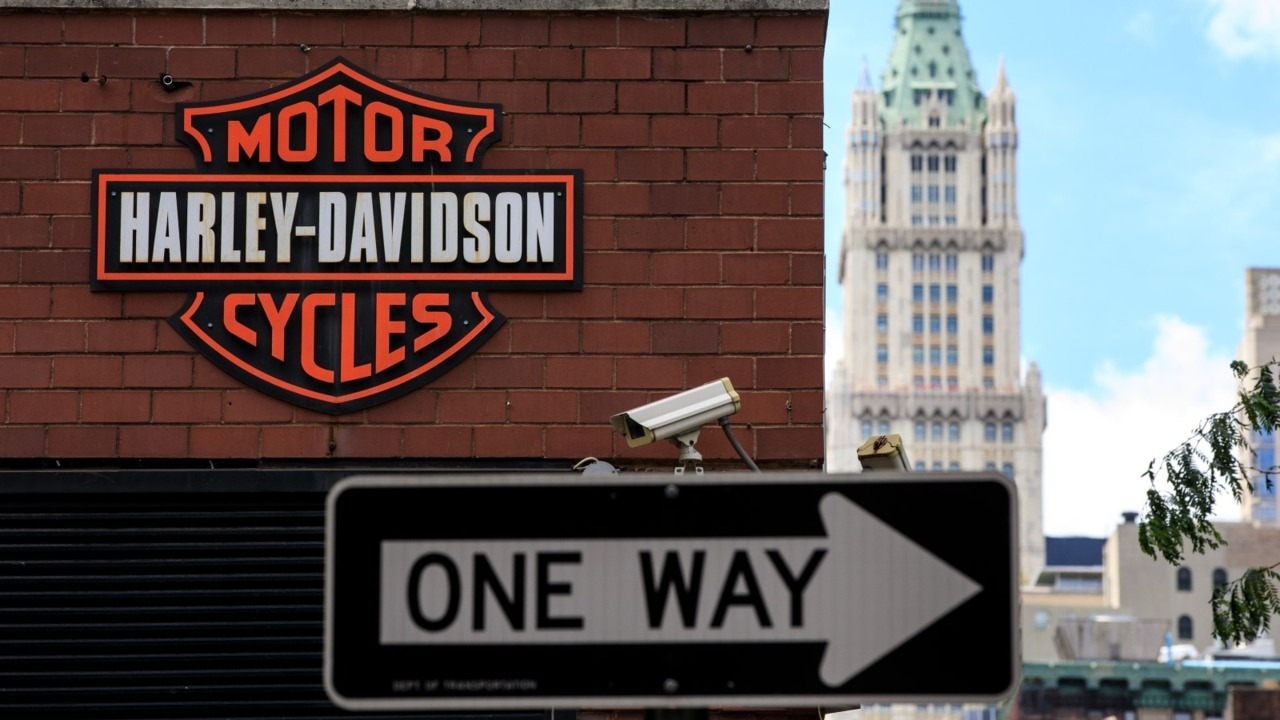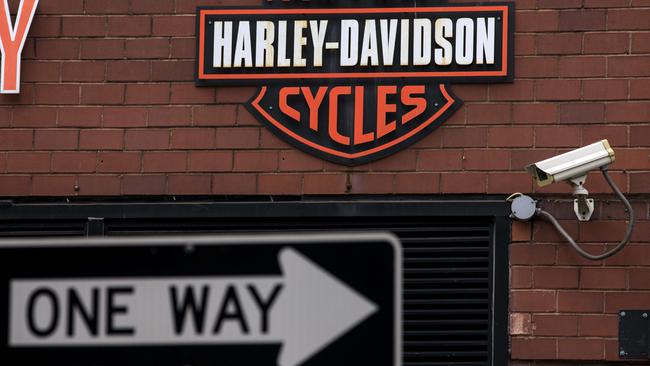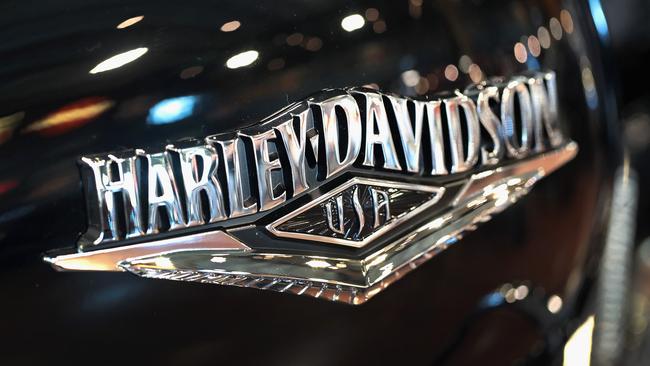Donald Trump’s White House to blame for Harley-Davidson’s shift offshore

Donald Trump’s trade war has been an abstraction for most Americans so far, but the retaliation has now begun in earnest and the casualties are starting to mount. The President’s beloved stock market took another header Monday on news of more restrictions on investment into the US, and the Dow Jones Industrial Average is now down for 2018.
But the biggest losers were the American workers who make Harley-Davidson motorcycles whose jobs will soon be headed overseas thanks to the Trump tariffs.
Last year Mr Trump commended Harley-Davidson for “building things in America,” calling the company “a true American icon, one of the greats.” And he proclaimed last week at a rally in Duluth, Minnesota, “We’re bringing back our jobs from other countries.” Awkward timing, Mr President. This morning the motorcycle company announced it will shift more production out of the United States.
US motorcycle sales have been on the decline, so Harley has kept its rubber side down by focusing on global growth. The company considers the EU a “critical market,” and last year it sold nearly 40,000 bikes to European consumers. But in retaliation for Mr Trump’s steel and aluminum tariffs, the European Union raised its tax on American-exported Harleys to 31 per cent from 6 per cent, effective last Friday. That amounts to a $US2200 tax on each motorcycle exported from the US to the EU.
In a Securities and Exchange Commission filing, Harley said “the tremendous cost increase, if passed on to its dealers and retail customers, would have an immediate and lasting detrimental impact to its business in the region, reducing customer access to Harley-Davidson products and negatively impacting the sustainability of its dealers’ businesses.” Translation for Mr Trump: Unlike real estate, cars and motorcycles are a global market.

Harley has opted not to raise prices, instead bearing the $US90m to $US100m annual cost of the tariffs in the short term. To avoid those trade penalties in the long term, Harley will scale back US operations over the next 18 months, making more bikes overseas.
Harley hasn’t provided details about how its American workforce will be affected. But Harley employs more than a thousand unionised US steelworkers — the very folks the President claims he’s protecting. Harley’s main manufacturing facilities are in Wisconsin and Pennsylvania, and Mr Trump has said the “big league” support of Harley employees helped him win the swing states in 2016.
A Harley-Davidson should never be built in another country-never! Their employees and customers are already very angry at them. If they move, watch, it will be the beginning of the end - they surrendered, they quit! The Aura will be gone and they will be taxed like never before!
— Donald J. Trump (@realDonaldTrump) June 26, 2018
The only response White House press secretary Sarah Sanders could muster today to the Harley news is that “the European Union is trying to punish US workers by engaging in unfair trade practices.” But the Harley harm is made in America — that is, the White House.
Mr Trump threw the first punch with his steel and aluminum tariffs, which have already driven up the cost of Harley’s raw materials by $US15m to $US20m this year, CFO John Olin said in an April earnings call. Mr Trump also killed the Trans-Pacific Partnership, which would have cut tariffs on American-made motorcycles. US withdrawal forced Harley to pursue its “Plan B” and build a plant in Thailand to avoid Asian tariffs.
“We would rather not make the investment in that facility, but that’s what’s necessary to access a very important market,” CEO Matt Levatich told Bloomberg in April. Meanwhile, the company will close its 800-worker Kansas City, Missouri, plant by 2019. Harley will expand operations in York, Pennsylvania, but the result is still a net loss in American jobs.

The protectionist pain isn’t limited to Harley. Mid-Continent Nail of Poplar Bluff, Missouri, makes about half of the nails produced in America. But Mexican steel wire is the company’s main input, and it’s now subject to a 25 per cent tariff. Mid-Continent tried passing that added cost to consumers, but purchases plummeted and buyers cancelled existing orders, opting for cheaper Chinese nails. The company has already cut 60 employees from its workforce of 500, and it will likely soon lay off 200 more. It’s now pinning its hopes on a tariff exemption from the Commerce Department, which is grappling with a backlog of 21,000 similar petitions.
The list of job casualties will continue to grow. A June report by the economic consulting firm Trade Partnerships Worldwide estimates a net loss of 400,445 jobs over the next three years because of the steel and aluminum tariffs, quotas and retaliation. That’s 16 jobs lost for each steel or aluminum job gained.
The damage is likely to have political consequences, as the retaliatory tariffs target industries in swing states. Wisconsin produces more than 90 per cent of America’s ginseng, and 95 per cent of that comes from Marathon County. The county went for Mr Trump in 2016, but it’s now wrestling with the consequences of China’s new 15 per cent retaliatory tariff. Mr Trump is also going to have some explaining to do to Wisconsin cranberry farmers, Florida orange-juice producers, and Iowa soy and corn growers.
Good luck to Republicans running on the Trump tariffs in November.
The Wall Street Journal



